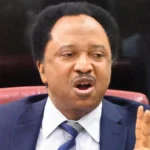Nigerian leaders love to travel, not within the country, but outside its shores. These frequent travels are ostensibly to attract foreign investment to the country or to polish our battered image in the ‘international community’.
Former President Obasanjo, for example, reportedly travelled out of the country 103 times during his first term alone, and to a total of 97 countries during his eight years in office, “canvassing global understanding and our mainstreaming into the ‘New World Order’ – not only for Nigeria but for the whole of Africa”, in Obasanjo’s own words. Former President Buhari too was known for his frequent travels abroad. Media reports estimate that, excluding his medical trips, Buhari visited 40 countries in 84 trips, spending about 206 days, to mobilize “international support for the war against Boko Haram”.
Few Nigerians are impressed by these scorecards of foreign travels, however. The costs in fat estacodes, expensive hotel bills, and much more, for hundreds of officials, ministers and governors who accompany presidents on each trip are regarded by many Nigerians as a waste of scarce resources. Nor are the gains exactly clear, because the scanty foreign direct investment (FDI) that trickles into the country can hardly be attributed to those trips.
Moreover, Nigerians consider some of these trips insignificant for their presidents to attend, and are often outraged by seeing their leaders being received by lowly-placed officials in other countries. Nigerians also decry the tendency for African leaders to assemble en masse at foreign capitals for annual ‘Africa Summits’ of little value, rather than looking inward for solutions to the continent’s economic and other problems.
Like his predecessors, President Bola Ahmed Tinubu has already indicated that foreign travel would be a major part of his agenda. Since his inauguration barely six months ago, Tinubu has already travelled out of the country 10 times, including his current trip to Dubai for this year’s Conference of Parties Summit (COP28), spending a total of about 52 days away from his office and the country. That is approximately two trips per month or one and a half of his six months. Tinubu has so far visited Britain, France, United States, Germany, India, Saudi Arabia, United Arab Emirates, Kenya, Guinea-Bissau and Benin Republic, some of them more than once.
- Gov Yusuf launches mobile clinics to boost emergency services
- Outrage over Nigeria’s 1,411 delegates to COP28 summit
At Daily Trust, we frown at Tinubu’s frequent trips, particularly for a new government that is yet to get to grips with challenges at home. We also believe that for some of the events for which the president has travelled, attendance by the vice president, the minister of Foreign Affairs, or other ministers would more than suffice. As Nigeria is facing serious forex liquidity challenges right now, cutting down on the president’s, ministers’ and governors’ foreign tours would help stabilize the currency.
Still, we single out three of the president’s recent foreign travels as worthy. His trips to the United Arab Emirates are clearly useful, to help restore normal travel and business relations with that country. Tinubu’s travels to Saudi Arabia are also commendable. The Kingdom is a rising political and economic power with serious economic ambitions and the dollars to actualize them. Tinubu’s attempts to build on existing foundations to expand the scope of our economic relations through refinery and cash deals with the Saudi government should therefore yield concrete fruits.
Most importantly, we believe Nigeria’s growing relations with Germany can open up serious vistas of opportunity for our country. We note that the German Chancellor, Olaf Scholz’s visit to Nigeria in late October, and President Tinubu’s return visit weeks later are indicative of a new level of engagement between Germany and Nigeria. Germany is the economic powerhouse of Europe and the heartbeat of the European Union. As it looks to shift away from a dependence on Russian gas, its current strategic interests with Nigeria are two: as an alternative source of gas and how Nigeria can help reduce African migration to Europe. Nigeria’s core strategic interests with Germany are also two: the Siemens Presidential Power Initiative and forex liquidity.
Managed expertly and seriously, both of these strategic interests can be met. We implore President Tinubu to focus his energy and attention towards building a more extensive, enduring and rewarding business relations with Germany, rather than junketing around the world chasing shadows. All too often, Nigeria’s economic relations with other countries tend to be long on empty platitudes and photo-ops with ‘world leaders’, but short on strategic depth.
Our entire foreign policy establishment, from the diplomatic corps to the research and cultural centres that should support them, has become dormant and bereft of ideas in recent years. They must be re purposed to take advantage of the emerging opportunities between Nigeria and other countries like Germany, Saudi Arabia and the like. Our previous flirtations with great powers like Britain, the US and China have not yielded much positive results, principally because the strategic depth and bureaucratic work that should follow those engagements have been lacking.
But now, as President Tinubu embarks on his fishing expeditions to Germany and Saudi Arabia, Nigerians expect some real fish back home.

 Join Daily Trust WhatsApp Community For Quick Access To News and Happenings Around You.
Join Daily Trust WhatsApp Community For Quick Access To News and Happenings Around You.


